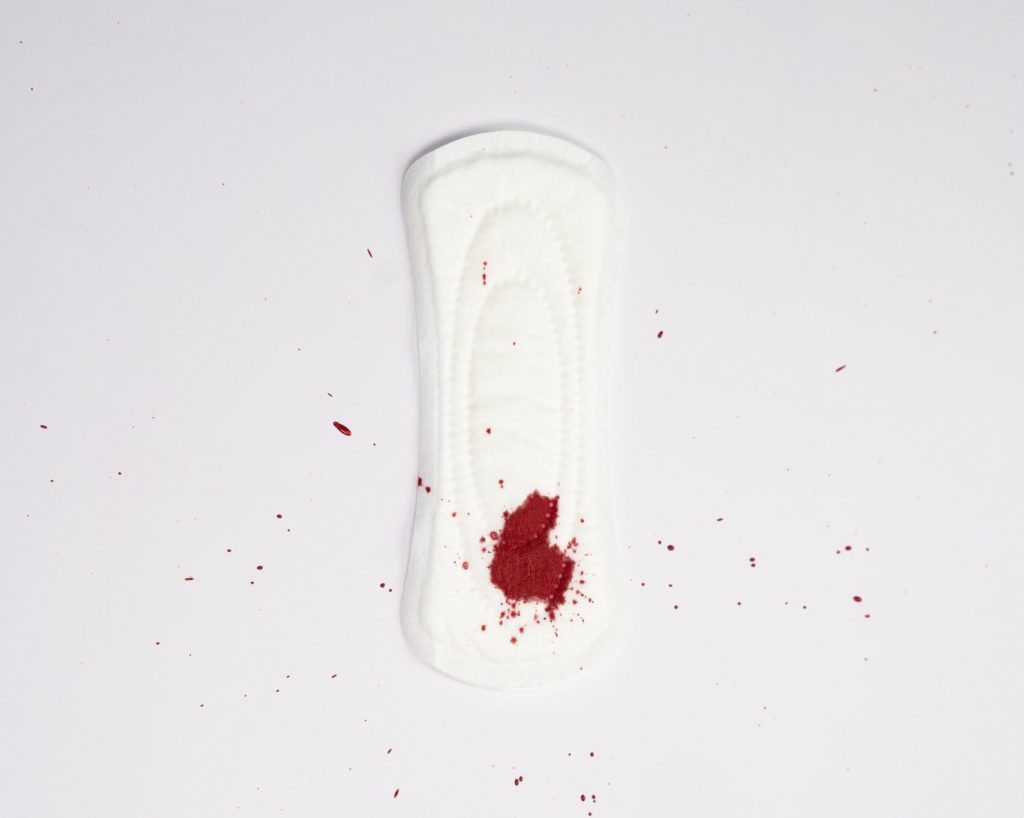Taboo Topic of the Day: Periods
This is a highly controversial topic, especially among most women, and can even go as far as religion wise. However, that’s not what I’m here to talk about. Most women aren’t afraid to show that menstrual cycles are a normal part of a female’s life, while others shy away from this fact.

At the moment, you might have some questions in mind such as:
- What’s a menstrual cycle? Or why am I bleeding from below?
- Is it normal?
- Why do I feel pain?
- Can I get rid of my menstrual cycle?
Many have shied away to the point of not knowing how to take care of themselves, and even worse, their own kids. Many of us might not be well-informed about this situation, but that’s fine; it’s what I’m here to address right now.

Well Let's Answer Some Of Your Questions Together
What’s a menstrual cycle? Or why am I bleeding from below?
According to Mayo clinic: “The menstrual cycle is the monthly series of changes a woman’s body goes through in preparation for the possibility of pregnancy. Each month, one of the ovaries releases an egg — a process called ovulation. At the same time, hormonal changes prepare the uterus for pregnancy. If ovulation takes place and the egg isn’t fertilized, the lining of the uterus sheds through the vagina. This is a menstrual period.”
It first occurs when a female goes through body changes upon reaching adolescence, her body begins to change to be suitable for childbearing. Menstrual cycles are indeed related to pregnancy (but I’ll be making a separate post on that.)
The girl consists of different organs and tissues that perform different tasks in the body, and among these organs is the uterus. The uterus is prepared every month to receive the fetus that is formed in the event of pregnancy. For this to happen, the uterus needs a layer of tissue and blood to prepare to receive the fetus.
If pregnancy does not occur, then this prepared layer is removed from the uterus, and this is done through the descent of blood from the vagina. This is called the menstrual cycle. This process is repeated every month until pregnancy occurs, and if pregnancy does not occur, this blood and tissue from the uterus slips out of the girl’s body through the vagina.
This happens every month. This blood continues to come out for a few days and then stops, and this means the start of a new menstrual cycle.
Is This Normal?
This process is extremely normal and happens to all girls when their bodies are growing and enlarging, and there is nothing to worry about.
There is no cause for concern, but the girl may feel some pain and nausea during this period.

Why Do I Feel Pain?
During menstruation, the lining of the uterus sheds, which is accompanied by a series of hormonal changes in the body. These hormonal fluctuations can cause the muscles of the uterus to contract, resulting in cramps, aches, and pain in the lower abdomen, back, and thighs.
The severity of menstrual pain can vary from person to person, with some experiencing mild discomfort, while others experience severe pain that interferes with their daily activities. Other factors that can contribute to menstrual pain include endometriosis, fibroids, pelvic inflammatory disease, and ovarian cysts.
Note: If you are experiencing menstrual pain that is severe or significantly impacting your daily activities, it is important to speak with your healthcare provider to rule out any underlying conditions and explore treatment options. There are many over-the-counter medications and lifestyle changes that can help manage menstrual pain, including exercise, heat therapy, and dietary changes.
Can I Get Rid Of My Period???
It is important to understand that menstruation is a natural biological process that occurs in women with uteruses, and it serves an important purpose in the reproductive cycle.
While there are some medical interventions that can temporarily stop or suppress menstruation, such as certain types of hormonal birth control or surgery, it is generally not recommended to do so without a medical reason, as it can have potential risks and side effects.
Note: If you are experiencing difficulties with your menstrual cycle, such as severe pain, heavy bleeding, or irregular periods, it is important to speak with your healthcare provider to determine the underlying cause and explore treatment options. There may be medical or lifestyle interventions that can help manage your symptoms and improve your quality of life.
The severity of menstrual pain can vary from person to person, with some experiencing mild discomfort, while others experience severe pain that interferes with their daily activities. Other factors that can contribute to menstrual pain include endometriosis, fibroids, pelvic inflammatory disease, and ovarian cysts.
Note: If you are experiencing menstrual pain that is severe or significantly impacting your daily activities, it is important to speak with your healthcare provider to rule out any underlying conditions and explore treatment options. There are many over-the-counter medications and lifestyle changes that can help manage menstrual pain, including exercise, heat therapy, and dietary changes.

In conclusion, it’s important for individuals to have accurate information about menstrual cycles. Unfortunately, due to the social stigmas attached to menstruation, many people may not feel comfortable seeking out this information. It’s crucial to break down these barriers and provide education about menstrual health, not just for individuals who menstruate but for the wider community as well. By normalizing discussions around menstrual cycles, we can reduce the shame and stigma associated with this natural bodily function, and ensure that everyone has access to the knowledge and resources they need to take care of their health.
